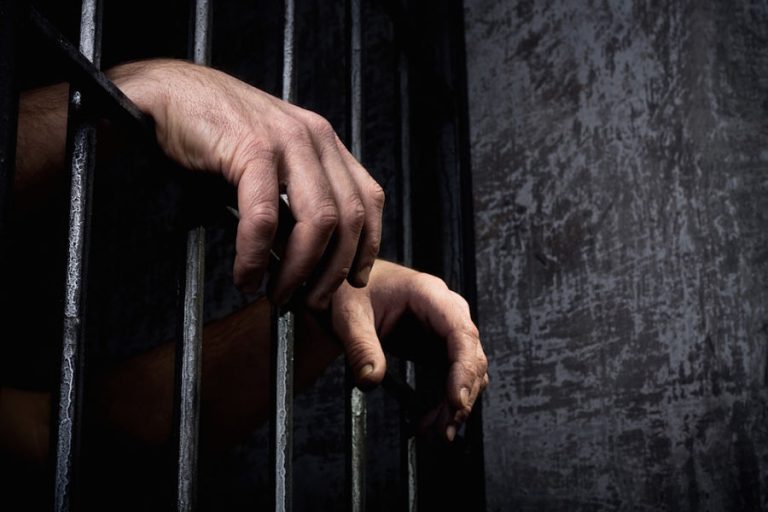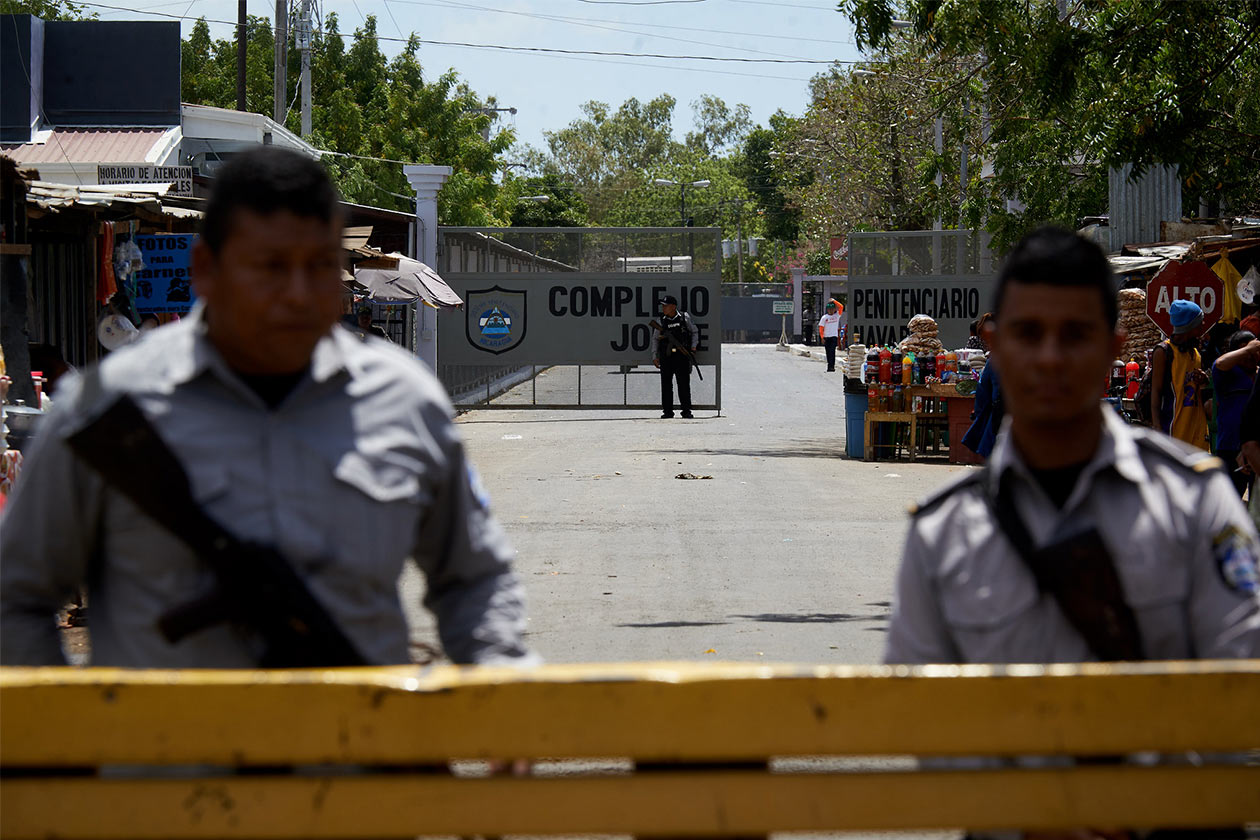9 de agosto 2020

Children of Exile: The Births “Sowing Hope” in the Camp of Nicaraguan Farmers

PUBLICIDAD 1M
PUBLICIDAD 4D
PUBLICIDAD 5D
The testimony of a prisoner of conscience in the “Modelo” prison reveals how the last hostages of the dictatorship survive the pandemic

// Foto: Agencias
Inside the prisons in Nicaragua, the lives of prisoners “matter little.” Not even now that the world faces a pandemic, which in seven months has killed more than 671,000 people; not two years ago, when in Nicaragua prison was the punishment for those who demanded a change in the country.
More than 85 political prisoners, between men and women, remain in prison, despite the fact that the government has released more than 14,000 common prisoners since 2019, as verified by the digital media “La Lupa,” including 6,000 released in the context of the pandemic.
Meanwhile, prisoners of conscience, for protesting against the regime, are locked in confined spaces, without access to medicines and with only two buckets of water a day, which must last so that everyone can bathe, cook, wash clothes and clean their excrements.
Confidencial managed to talk with one of the political prisoners who remain in the prisons of the Ortega dictatorship, on the condition of keeping his identity anonymous, to avoid being tortured.
From prison, the prisoner of conscience narrates how his days have been since rumors of the virus reached the Jorge Navarro Penitentiary System, known as “La Modelo.” This is his testimony, in first person, about the conditions he faces in the country’s largest prison.
By now, all prisoners know about the coronavirus. Some of us care more than others, but life has little value in here. We are locked in deplorable and unfair conditions. I am one of the “lucky ones” who is in a “large” cell and, for now, with fewer inmates than normally fit.
I know that there are worst cases. For example, there are seven political prisoners who are in punishment cells. There are some that are in the 300, known as “El Infiernillo” (little hell), and others in lower Gallery 2, which is for inmates who are considered dangerous or who are in gangs.
Where I am is “large” in comparison to other cells. By large, I am mean that this space is about five meters wide by about five meters large. We have a bathroom area which has a sink and a hole where more than 12 inmates relieve themselves. The water they provide us is almost never enough for so many. There have already been fights over a bowl of water.
The day begins here at four in the morning. The pair of inmates who are on duty receive the buckets of water and the food that they bring us, which is generally rice and beans or “gallopinto” (mixed rice and beans). Then, you have to be ready when they pass it out, because if not you will end up without any food.
Cell searches are uncertain. They can happen at any time. We try to take it easy because we have a lot to lose. To pass the time we play cards or “home”—a game similar to Parcheesi—there are some who do tattoos and others who take up worship. Anything that will make the days here feel shorter and bearable.
Two years ago, when they began to imprison those who oppose this system, this was more bearable because they were all together. Now, it is no longer the case. Political prisoners are scattered throughout the penitentiary and it is almost prohibited to communicate with each other, since there are almost always common inmates “who act as snitches” (who spy on what we say to each other).
The days that we manage to talk are when they take us out, for 15 or 20 minutes, to get sun at the patio, but with this coronavirus they only take us out once every 15 days. Before it was twice a week and the whole wing went out; now they take us out three cells at a time. I hardly see any of the others anymore.

A political prisoner assures there were at least three deaths suspected of coronavirus. Carlos Herrera / Confidencial
The first time we heard about this virus was because our relatives told us on visits, and the rumor began to spread, because everything works that way here; by rumors. Around that time, I remember that one of the prisoners, who is a Sandinista and has a radio, began to listen, besides Radio Ya, the Radio Corporacion news program, so we heard both versions of what was happening.
In the prison they told us about the pandemic for the first time, in March. They took us to the tunnel, a place that used to serve as showers and has a “Nicalit” (made with asbestos and other material) roof, and there they gave us an “informative talk,” but it was all pure “show-off” because they took us out to photograph us.
That is how everything has been until now, because they do not even give us any medicines when someone gets sick, and barely give us masks when they take us to the courtroom. Everything is a show.
We believe that the virus is already in the prison. Several suspicious deaths occurred in May. There were three prisoners from Gallery 9, whose names I don’t know because I didn’t know them, who died suddenly and were taken out at night. They were old men.
After that, prison officers began making a survey with inmates who were over 50 years old, and many of them were released with the May 13 pardon, in which 2,815 prisoners were released from all over the country. As if to say: “Let them die in the street.”
I have seen several inmates who have the symptoms caused by the virus: flu, cough and fever, there are some who have lost their taste and sense of smell. And even though they are sick, it is difficult for them to be taken to the clinic, because they practically take us out to pretend and they don’t even give us medicine. What they do is write some small papers with names (of the medicines) so that our relatives can bring them to us.
When they finally took me to the clinic, due to a chronic problem, I heard them whispering among themselves “this is one of those that you know,” referring to the fact that I am one of the political prisoners, although officially they have me as a common prisoner.
The most conspicuous changes within the prison occurred in June. They began to fumigate daily with cypermethrin (an insecticide) and “trained” the prisoners who have a long sentences to work in the coordination of the galleries. This “training” was to teach them how to use a stethoscope and take our blood pressure. But what is that good for if they don’t give you medicine?.
Before, they did not wear masks, nor did they ask us to wear those that our relatives brought to us to jail. But a couple of weeks ago I saw several guards in gray masks that have the Sandinista Front emblem; 41/19, for the anniversary of July 19. But that is also a hoax because they limit the number of masks that can be brought to us.
In the cell, we have decided to disinfect with hypochlorite, a raw material for chlorine, which our relatives manage to pass to us, but it is difficult to be separated in such close quarters. The Red Cross has come to see us in these months, but I consider that their intervention has been deficient, because they take us to the clinic that is at the main entrance and there, they interview some of us on basic aspects such as health, food, state of mind and legal situation. They don’t enter where we are, they don’t see how we live.
Here we know that at any moment we can get sick and when that happens, I don’t know what we are going to do.
Archivado como:
PUBLICIDAD 3M
Confidencial es un diario digital nicaragüense, de formato multimedia, fundado por Carlos F. Chamorro en junio de 1996.
PUBLICIDAD 3D